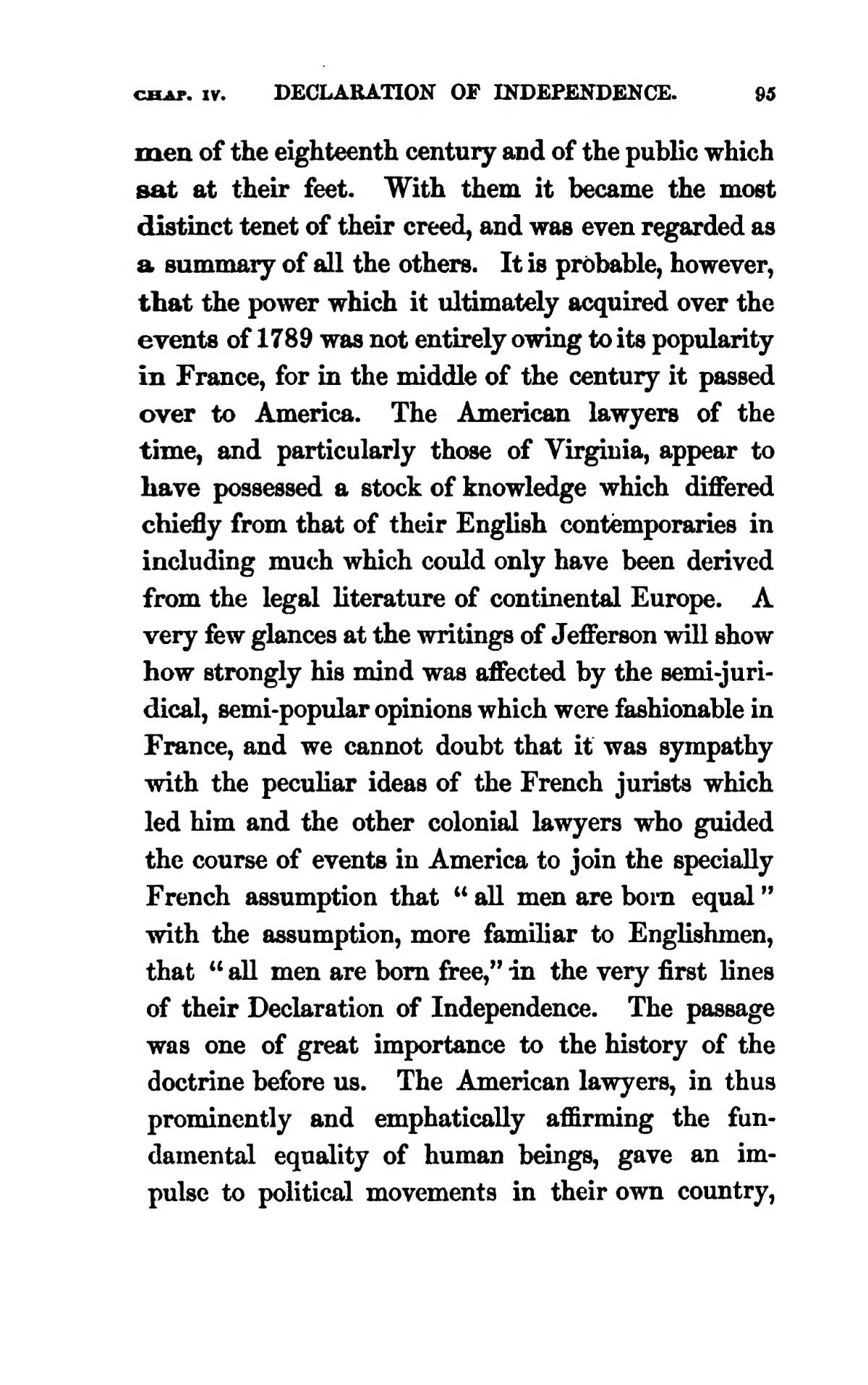men of the eighteenth century and of the public which sat at their feet. With them it became the most distinct tenet of their creed, and was even regarded as a summary of all the others. It is probable, however, that the power which it ultimately acquired over the events of 1789 was not entirely owing to its popularity in France, for in the middle of the century it passed over to America. The American lawyers of the time, and particularly those of Virginia, appear to have possessed a stock of knowledge which differed chiefly from that of their English contemporaries in including much which could only have been derived from the legal literature of continental Europe. A very few glances at the writings of Jefferson will show how strongly his mind was affected by the semi-juridical, semi-popular opinions which were fashionable in France, and we cannot doubt that it was sympathy with the peculiar ideas of the French jurists which led him and the other colonial lawyers who guided the course of events in America to join the specially French assumption that "all men are born equal" with the assumption, more familiar to Englishmen, that "all men are born free," in the very first lines of their Declaration of Independence. The passage was one of great importance to the history of the doctrine before us. The American lawyers, in thus prominently and emphatically affirming the fundamental equality of human beings, gave an impulse to political movements in their own country,
Page:Ancient Law.djvu/108
CHAP. IV.
DECLARATION OF INDEPENDENCE.
95
